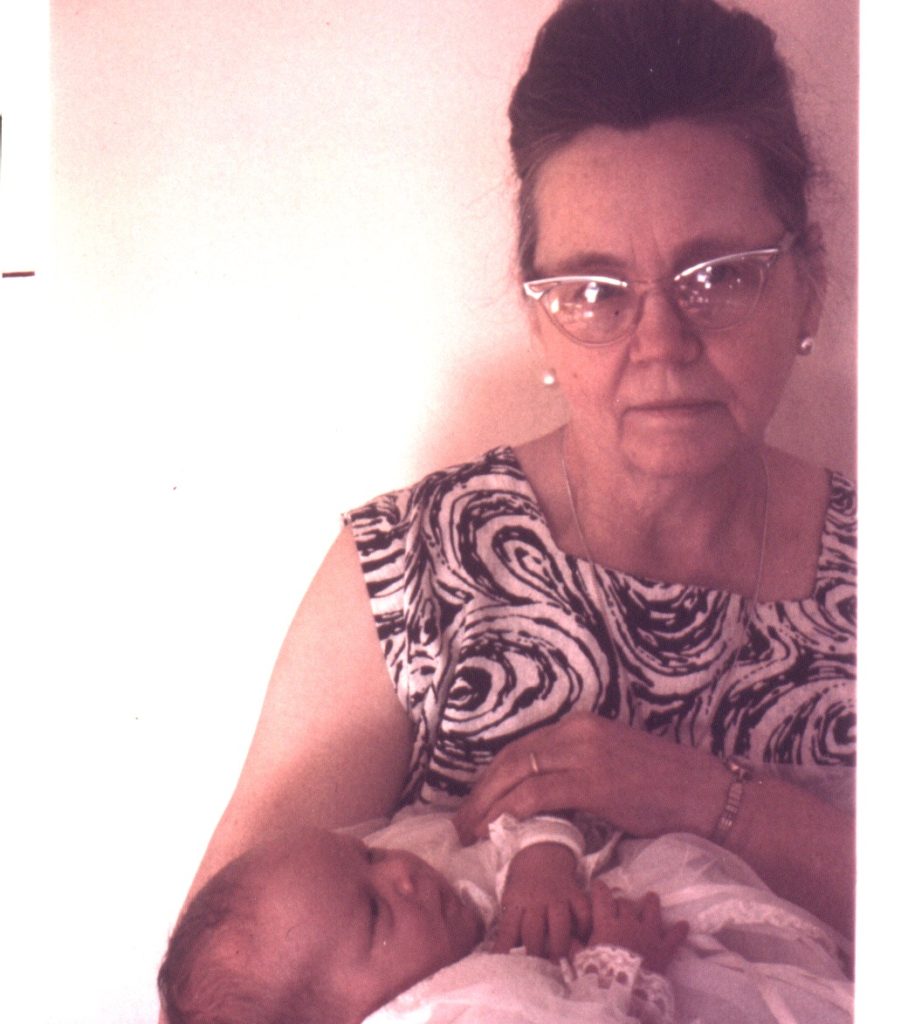Robert’s grandmother, Elisa Sylvain née Thibodeau, grew up in the St. John River Valley, in the heart of Maine’s Acadian region. As the matriarch of a family of forty grandchildren Elisa made the quilts, cooked the tourtière, and kept the songs of her heritage alive for her progeny.

As the keeper of songs in his generation, Robert inherited his Mémère’s cherished notebook of old Acadian ballads, which he has painstakingly researched for their historical sources, found the original melodies, translated and arranged the songs to present to a new generation as proof that Acadian culture still lives in Maine.

About the Project
About the notebook:
Representing a mélange of poignant laments & serenades along with uproarious broadsides & epics, the original notebook includes over fifty pages of lyrics written down by my paternal grandmother, in the great tradition of passing down folklore through song. About half of the three dozen songs—of which twelve are presented in this first volume—have been identified and attributed to their autochthonous melodies found on field recordings in academic archives from the Maritimes, Québec, Maine and Europe. With the exception of a few French popular songs from early radio days (not appearing in this volume) all are chansons folklorique from the expansive Acadian repertoire which draws from old-world Breton chestnuts and medieval Occitan troubadour songs as well as new-world stories born from 400 years of hard winters on the North Atlantic coast.
About the recordings:
We’ve produced a professional studio recording of thirteen songs from the notebook in both French and English, featuring some of the greatest traditional musicians in the northeast. Sylvain has returned to his favorite hometown studio, Acadia Recording Company, enlisting longtime friend and recording arts wizard Jason Phelps to build a sound that honors the traditional while advancing the music to new heights for today’s audiences. Gathering a world class ensemble of musicians almost entirely based in Maine, the recordings manifest a sense of place that echoes through generations. From the simple a capella treatment handed down from his Mémère, Robert has carefully translated and arranged the songs for modern sensibilities. Through his many collaborations Sylvain has incorporated old and new elements including everything from hurdy-gurdy to brass ensemble. Guest musicians include Steve Muise – fiddle, foot percussion • Junior Stevens – accordion • Nicole Rabata – flute, whistle • David Surette – cittern, guitar • Steve Roy – bass • Per Hanson – drums • Neil Pearlman – piano • Eric Ambrose – trombone • Joe Parra – baritone sax • Will Jones – tenor sax • Erica Brown – fiddle • Meg McIntyre – violin • Andrew Richter – cello • Betsy Hooper – hurdy gurdy • Matt Shipman – ti-fer Suzanna Sylvain, Johnny Sylvain, Lil’ette Sylvain, Pip Walter – vocals • Rob Duquette – snare
About Robert
Robert Sylvain, Jr. is an Acadian-Maineiac committed to bringing the rich musical heritage of his ancestors forward to a new generation of listeners, exploring the depths of traditional culture and the edges of modern culture to present heritage music that is both relevent and timeless. With over 30 years of professional experience in performance and recording arts, Robert has earned accolades for innovation and inspiration among trad-music aficionados and critics worldwide.
Music, Culture, History, Entertainment, Education.
There are many facets to this project beyond just a new CD release. Acadian culture has been underground in Maine after generations of forced assimilation, but many young people are rediscovering the beauty and power of heritage music. Traditional art connects us to our past and informs our present in profound ways. In digging through these old songs and sharing them, I’ve learned important lessons about history, culture, and universal truths that bind us together. I’ve also learned that I’m not interested in heritage presevation for it’s own sake— some traditions are simply better off under glass. Instead I strive to find the vital parts of our music and culture. I hope to bring new life to these primeval songs and stories and interpret them for a new generation to present a case for a living, organic Acadian community that we can all identify with.